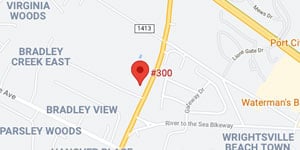
How Safe Is Your Vacation Home?
North Carolina’s tourism industry is fueling the economy. In 2015, 54 million travelers spent over $21 billion statewide. Approximately 211,000 jobs are supported, and traveler spending generated $2.9 billion in tax revenue. The coastal regions have an abundance of vacation rental homes. Many are privately owned with local management agencies that facilitate the rentals. The 1999 NC Vacation Rental Act (VRA) was enacted, creating a standard for rights and obligations of landlords, real estate brokers, and tenants. Several accidents recently have heightened concerns regarding the safety of aging rental properties.
Emerald Isle Incidents
In 2015, properties in Emerald Isle experienced highly publicized structural failures. In July, an Ocean Drive home had an exterior deck collapse, injuring 20 Virginia family members after falling 14 feet. In August, another Ocean Drive structural failure sent nine people falling, leaving a 62-year old woman with multiple fractures. Local government has since implemented annual inspections and increased safety code regulations.
Arrival Inspections
Landlords must maintain properties in “fit and habitable conditions” and repair areas with unsafe conditions. One overlooked preventative measure for tenants is to thoroughly walk the interior and exterior of the property when arriving to check for any visible safety concerns. Concerns should be reported immediately to the landlord or management company. Smoke and carbon-monoxide detectors should also be tested for functionality.
Premises Liability
North Carolina premises liability laws assign property owners the responsibility for keeping properties in a reasonably safe condition. Lawful visitors are owed a duty of care to prevent injury. To establish owner liability, claimants must be injured from a dangerous condition on the property of (or under control of) the owner. Injuries must be attributed to failures to maintain safety or to warn of known unsafe conditions. Owners may then be responsible for medical expenses, lost wages and future earnings, pain, and suffering, and others damages.
Liability Waivers in Agreements
A written and signed rental agreement is required by the VRA, which includes:
- Financial terms including funds due, deposit requirements, cleaning fees and/or processing fees;
- Eviction and evacuation procedures; and
- Rights and obligations of landlords, brokers, and tenants. Common provisions include tenant responsibility for damage to the rental property beyond normal wear and trash removal and landlord requirements to maintain plumbing, electrical, heat, and appliances.
Commonly, rental owners add provisions to agreements such as “acknowledgments of risk” or “waivers of liability.” Generally, these apply to special property amenities such as pools and hot tubs. You should closely review all terms when entering such agreements.
Have you sustained injuries while visiting a Wilmington area home or business? State laws allow recovery for losses endured because of the negligence of those controlling the property. The Rhine Law Firm, P.C., has held individuals and their insurance companies accountable for over 30 years. Contact the office today for a consultation at (910) 772-9960.
About Us
Rhine Law Firm, P.C. serves clients throughout North Carolina and nationwide, specializing in complex civil litigation led by Joel Rhine. With expertise in personal injury, car accidents, property damage, sex abuse, and more, the firm is passionate about taking on challenging cases. They emphasize providing personalized legal representation, prioritizing their clients’ best interests while offering state-of-the-art legal strategies. Rhine Law Firm’s dedicated attorneys enjoy the fight for justice and are committed to guiding clients through complicated legal processes. The firm offers free consultations, flexible appointment scheduling, and Spanish language services.




